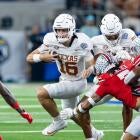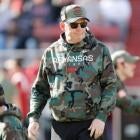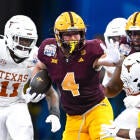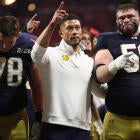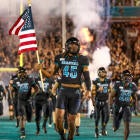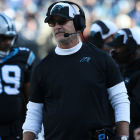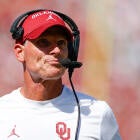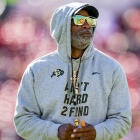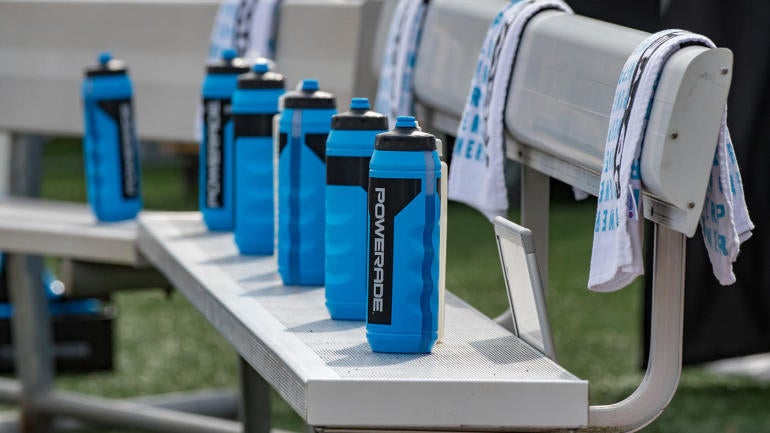
The Ivy League has decided that fall sports, including college football, will not be played at its institutions in 2020. The conference announced Wednesday evening that "it will not be possible for Ivy League teams to participate" this fall "as athletics is expected to operate consistent with campus policies, including restrictions on student and staff travel, requirements for social distancing, limits on group gatherings, and regulations for visitors to campus."
The significant move comes as more questions and concerns arise about the feasibility of playing the 2020 college football season amid the coronavirus pandemic. Time is running out for the FBS season to start on time, which is leading many to wonder whether it will ultimately be moved a few months to the spring of 2021.
As to whether the Ivy League would consider playing football or its other fall sports this spring -- a notion considered undesirable by the Power Five conferences as the sport weighs contingency plans -- no decision has been made at this time.
"A decision on the remaining winter and spring sports competition calendar, and on whether fall sport competition would be feasible in the spring, will be determined at a later date," the Ivy League said in a release.
There are also financial considerations to take into account for the Ivy League. The conference loses more money on football than any other sport.
"Football hasn't been decided yet if it would be moved to the spring, but logistically, I don't know how that would work," an Ivy League source told CBS Sports' Matt Norlander. "... You can't move all the sports to the spring; the logistics don't work. The soccer field is the lacrosse field. The scheduling would be a nightmare."
The Ivy League will allow athletes to practice and train as long as they are within each institution's health and safety guidelines. It also announced that athletes will not utilize a season of NCAA eligibility in the fall.
Basketball, the Ivy League's real money-maker, is its only profitable athletic venture. The basketball season is unlikely to start on time, which could eliminate most -- if not all -- of its nonconference games. Ivy League programs bring in anywhere between $400,000-$500,000 annually in guarantees from nonconference games, money that may be gone for the 2020-21 season.
"If things don't get better, we're not even going to pay basketball," the source said. "[Decision makers are] holding out hope we can play basketball."
The Ivy League becomes the first Division I conference to make such a sweeping change. There have been cancellations in college football's lower ranks, including Division II program Morehouse College and at least three Division III schools, but nothing quite like this.
The Ivy league was also the first conference to cancel its tournament on March 10. After initial blowback for supposedly overreacting, the league saw other conferences quickly follow suit once the gravity of the COVID-19 outbreak became clear.
There is resistance to moving the FBS college football season to the spring with doing so being called, among other things, a "last resort" by Penn State athletic director Sandy Barbour. Ask 10 different athletic directors, university presidents or conference commissioners about the most possibility, and you'll likely get a variety of answers.
The NCAA's approved preseason calendar is set to begin in a matter of weeks and camp is scheduled to start back up. However, multiple programs, including Houston, Kansas State and Kansas have already been forced to suspend voluntary workout because of COVID-19 spikes among athletes.
Pac-12 commissioner Larry Scott said of the upcoming season: "Unless we see a change in the trajectory of the spread of the virus and its impact pretty quickly, I think the situation's a lot more perilous than it was a few weeks ago."
The spike in COVID-19 cases since June has cast more doubt that the upcoming college football season will be played as normal. What that season looks like is still to be determined, though we could have a much clearer idea in the coming weeks.
![[object Object] Logo](https://sportshub.cbsistatic.com/i/2020/04/22/e9ceb731-8b3f-4c60-98fe-090ab66a2997/screen-shot-2020-04-22-at-11-04-56-am.png)








